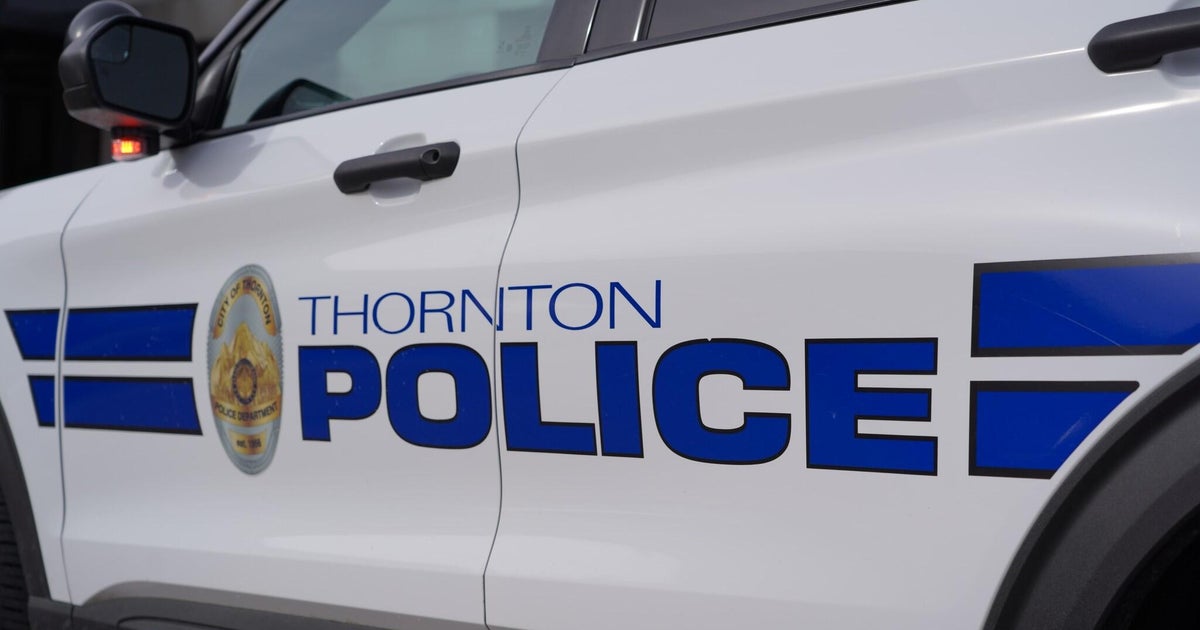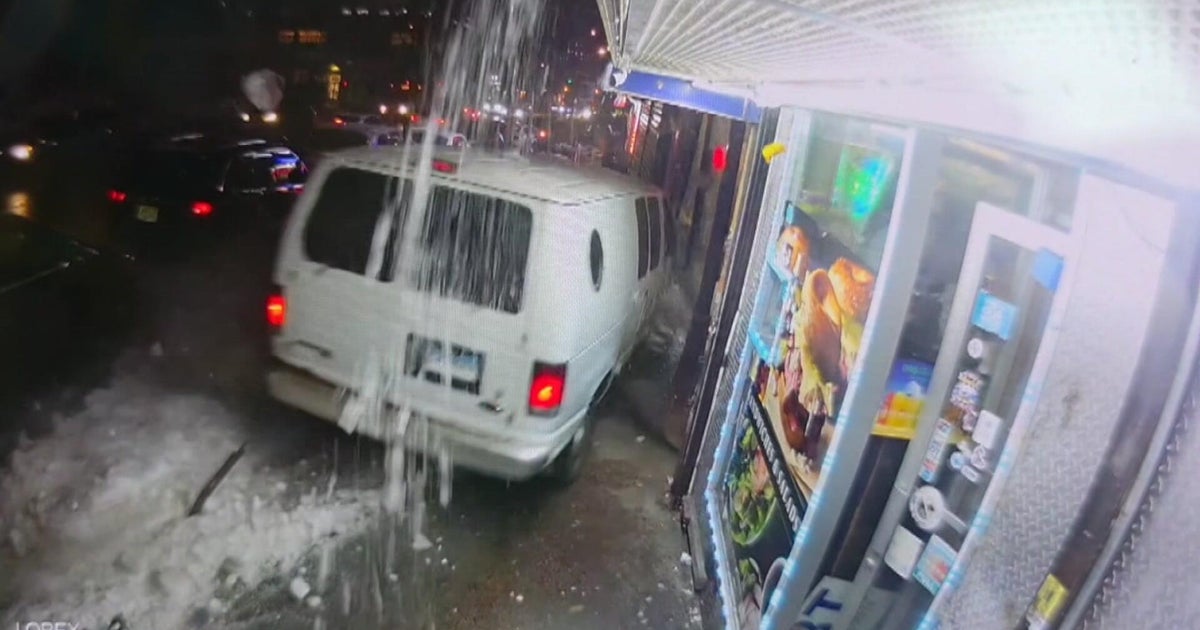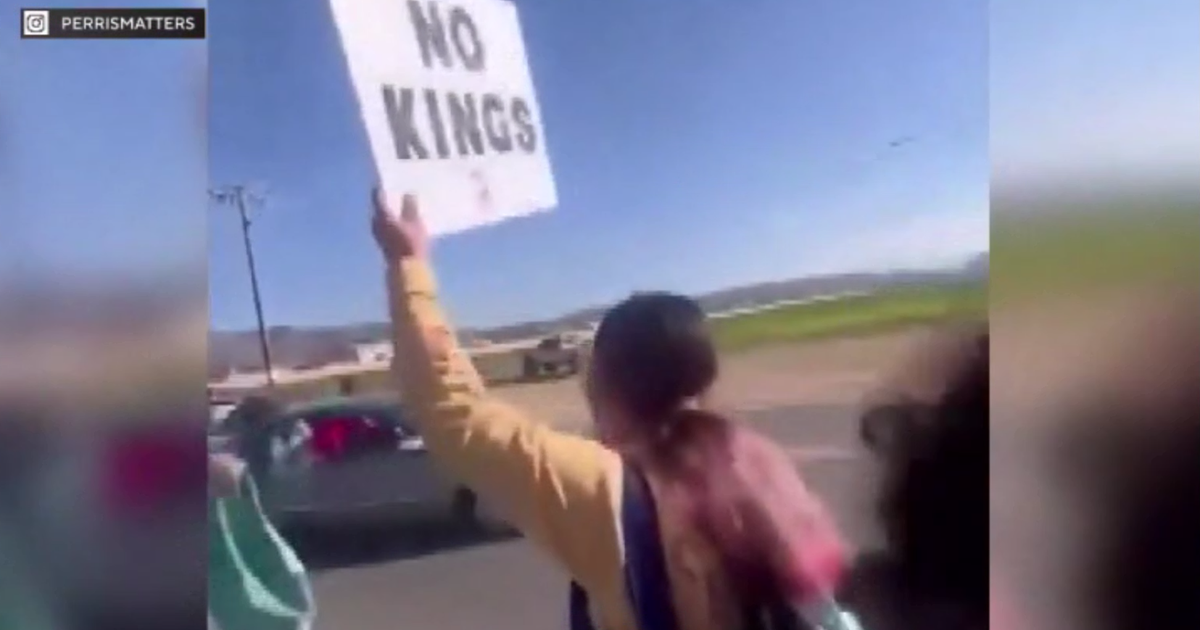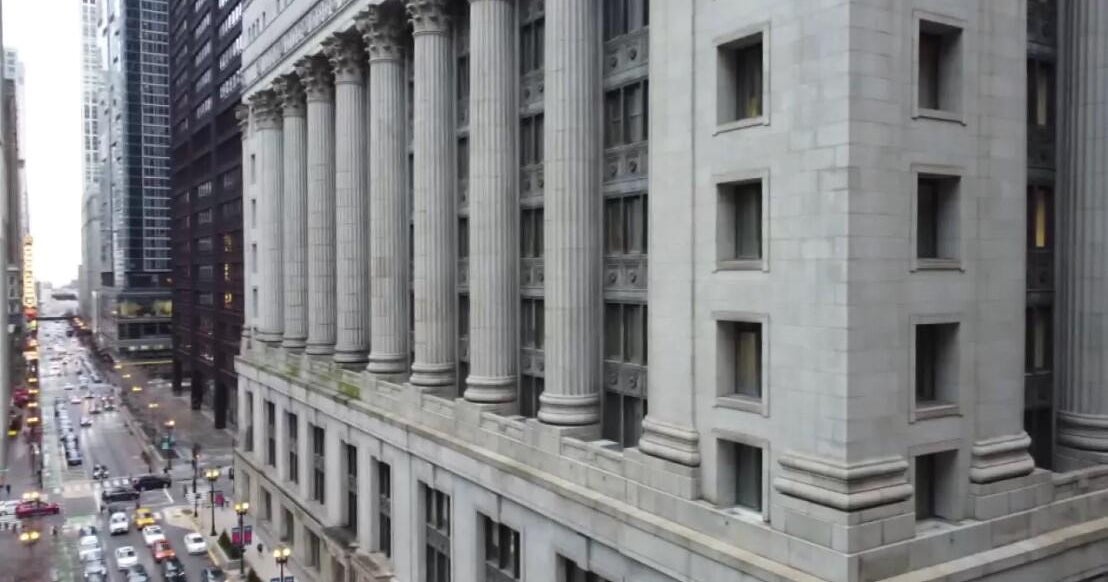Could US Drivers Ever Abide By Cellphone Ban?
DALLAS (AP) – Junior Woods has a well-practiced routine for conducting business on the road: While driving throughout rural Arkansas, the electronics salesman steals a glance at his cellphone every so often, checking for text messages and emails.
"I can keep both hands on the steering wheel and just look down my nose and read in 10-second intervals," Woods said in a phone interview from Rogers, Ark. "I'm actually doing that right now."
Like millions of other Americans, Woods uses his car as a mobile office, relying on his phone almost every hour of every workday to stay productive and earn a living. So would drivers ever abide by a proposed ban on almost all cellphone use behind the wheel, even if it is hands-free? Could they afford to?
Those are just a few of the questions looming over a federal recommendation that seeks to rein in what has become an essential tool of American business.
Woods said the ban, if adopted, would devastate his sales. Because he lives in a rural state, his minimum drive is an hour and a half.
"If I have a 3 1/2-hour drive to Little Rock, and I've got 100 messages to return, it's going to turn that into a six-hour drive," he said. "I've got no secretary. I'm the administrative assistant. I'm the salesman. I'm the sales director."
The National Transportation Safety Board declared Tuesday that texting, emailing or chatting while driving is just too dangerous to be allowed anywhere in the United States. It urged all states to impose total bans except for emergencies.
The NTSB, an independent agency that investigates accidents and makes safety recommendations, doesn't have the power to impose regulations or make grants. But its suggestions carry significant weight with lawmakers and regulators.
Still, a decision rests with the states, meaning that 50 separate legislatures would have to act. And many lawmakers are just as wedded to their cellphones as Woods.
"I think all of us have mixed feelings on this issue. How could you not?" said U.S. Rep. Gerry Connolly, whose northern Virginia district has some of the longest, most traffic-choked commutes in the country.
Before going to Congress, the Democrat spent most of his career at the county level, driving around Fairfax County with his cellphone. Now he commutes to Capitol Hill by carpool or mass transit so he can use his phone without getting behind the wheel.
While he's sympathetic to the NTSB's safety concerns, he said, a blanket ban on cellphone use would be unenforceable. But he agrees that hands-free devices offer little improvement over those that are hand-held.
"It's a cognitive distraction," he said. "The mental attention shifts ... to that other party, not to the task at hand."
Dallas event planner Debbie Vaughan said she would abide by any ban, but her service to clients would be diminished.
"I know many people are frustrated when all they get is voicemail," said Vaughan, who spends about 10 hours a week on her cellphone in her car.
Bruce McGovern said he would have no choice but to defy the law.
McGovern, who owns four Massage Envy and four European Wax Center franchises in the Dallas area, said he spends up to four days a week on the road, traveling between his businesses.
"My business would go down. We'd have problems we couldn't solve. My employees wouldn't be able to reach me and get timely answers," McGovern said.
"Customer issues that only I can resolve would have to be delayed. And in this day and age, customers want instantaneous results for things. They're not willing to wait three or four hours," he said.
McGovern, who said he uses hands-free technology 90 percent of the time, said he's been conducting business from his car for more than 20 years, starting with an early "bag phone" that predated today's much smaller cellphones.
"It's a total overreach of the government. It'll be enforced erratically. They can't even enforce the speed limits," McGovern said.
Boston attorney Jeffrey Denner said he racks up at least 25 billable hours each week while driving.
"I probably spend three hours a day on the phone in the car -- minimum. In an hour, I can talk to 10 people. On my way to court, I call people to make sure witnesses are lined up. It's become a part of my life."
Besides, he said, there's plenty of other distractions modern drivers deal with.
"If you want to talk about distraction, you should talk about how the whole notion of technology is distracting. Let's look at the command centers in cars right now, with the GPS, climate control, satellite radio with 9,000 options, looking down, getting directions. There are 20 different things we're playing with in our cars all the time."
J.R. Maddox of Minneapolis, another attorney, said it makes no sense to ban hands-free devices.
"If they wanted to go that far, they should also ban speaking to anyone in the car," Maddox said. His hands-free device allows him to keep both hands on the wheel, maintain his field of vision and look over his shoulder.
"The fact of the matter is we have to travel to work. It would reduce the amount of time I could actually communicate with clients and, hence, billing time."
The federal government last year banned texting while driving for commercial truck and bus drivers. The ban was extended to all hand-held cellphone use last month, although commercial drivers can still use hands-free devices.
The chairman of a South Dakota trucking company said he doesn't understand why people need to be talking on the phone while driving in the first place.
"There's nothing so important that they need to run somebody over because they couldn't stop," said Larry Anderson, of A & A Express Inc., a Brandon, S.D., company that hauls refrigerated products.
In New York City, Chrissy DeLuso and her mother were waiting for a cab to take them to a Broadway show. Both women agreed that texting while driving was a bad idea and didn't mind if the government cracked down on it.
But when it came to banning all cellphone use, they hesitated.
With a smile, DeLuso admitted she "can't promise" she wouldn't be talking on her cell phone even if it were illegal.
Jo Trizila, president of Dallas public relations company TrizCom Inc., said she would welcome a comprehensive ban, even for hands-free technology.
"I think it would be actually good for mental health," she said, "that you just have some down time."
(Copyright 2011 by The Associated Press. All Rights Reserved.)







